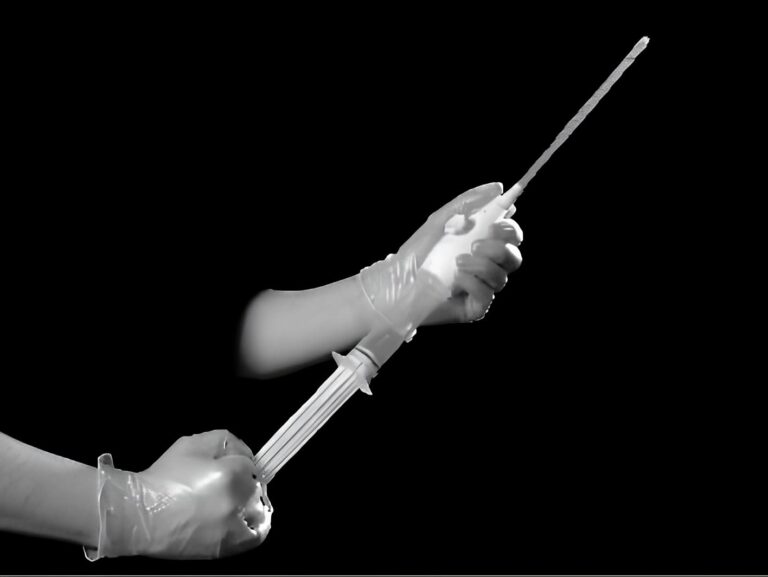Editor’s note; The following is an edited draft of a statement of Kiao Duan Gao, a former Chinese administrator of one of the facilities where the Chinese one-child policy is put into effect. A version of this testimony was offered before the Committee on International Relations, Subcommittee International Operations and Human Rights.
“I am a citizen of the People’s Republic of China. I came to the United States in April of this year.
From 1984 to 1998 I was employed at the Planned-Birth Office in Yonghe Town, Jinjiang Municipality, in Fujian Province. My job, as the administrator, was to work out and implement concrete measures pursuant to the documents of the Central Committee of the Chinese Communist Party, and the State Council on planned-birth. Yonghe Town has jurisdiction over 22 villages with a total population of over 60,000. The Yonghe Town Planned Birth Office, PBO for short, was established in 1984. Initially, it was staffed with two members, with an office in the government office building in the town .…
The PBO now occupies a 4-story office building that was built in 1992. On the ground floor are offices, a computer room, and 2 rooms for detaining those who violate the planned birth policy. On the second floor is an operation room for examining pregnant women, for performing contraceptive ring insertion, and for performing sterilization surgeries. On the fourth floor is a dormitory for the staff members. Since planned-birth is China’s basic national policy, from the Central Planned-Birth Committee right down to every single village in the nation, full-time cadres zealously carry it out.
Routine operations detailed
The routine of the PBO is as follows:
- To establish a computer data bank of all women of child-bearing age in the town (10,000 + women), including their dates of birth, marriages, children, contraceptive ring insertions, pregnancies, abortions, child-bearing capabilities, etc.
- To issue “birth-allowed certificates” to women who meet the policy and regulations of the central and provincial planned birth committees, and are therefore allowed giving birth to children. Without a certificate, women are not allowed to give birth to children. Should a woman be found pregnant without a certificate, abortion surgery is performed immediately, regardless of how many months she is pregnant.
- To issue “birth-not-allowed notices.” Such notices are sent to couples when the data concludes that they do not meet the requirements of the policy, and are therefore not allowed to give birth. A couple whose first born is a boy or whose first born is a girl, but who give birth to a second child, boy or girl, receive such a notice after a period of three years and two months. Such notices are made public, and the purpose of this is to make it known to everyone that the couple is in violation of the policy, therefore facilitating supervision of the couple.
- To issue “birth-control measures implementation notices.” According to her specific data, every woman of childbearing age is notified that she has to have contraceptive ring reliability and pregnancy examinations when necessary. Should she fail to present herself in a timely manner for these examinations, she will not only be forced to pay a monetary penalty, but our supervision team will apprehend her and force her to have such examinations.
- To impose monetary penalties on those who violate the central and provisional regulations. Should they refuse to pay these penalties, our supervision team members will apprehend and detain them long as they do not pay.
PBO regularly supervises and examines how staff members of planned-birth offices in 22 villages perform their duties. The municipal planned-birth committee often sends random “go-to-the-countryside cadres” to villages, for fear that local cadres could cooperate with villagers, or that a local backlash would develop against the cadres who conscientiously carry out their duties.
- To write monthly “synopses of planned-birth reports,” which are signed by the town head and the town communist party, and then are submitted to the municipal people’s government and the communist party committee. Then we wait for the cadres from superior organs of the government to check our work at any time.
- To analyze informant materials submitted in accordance with the “informing system.” and then put these cases on tile for investigation. Some materials are not conclusive, but planned birth cadres are responsible for their villages, and to avoid being criticized and punished by their superiors (there is a very strict system of encouragement and punishment [Appendix VI]), they will resort to anything to achieve planned-birth goals set by their superiors. One instance is the Wang Yuan Qing case. Cases like it are numerous. The cadres are responsible for these cases, but the main reason why they are pursued so aggressively is that the cadres are under tremendous pressure from the central and provisional regulations to carry out the policy. However brutally such cadres infringe on human rights, they are never impeached and never punished for their actions.
Whenever the PBO calls for organizing “planned-birth supervision teams,” the town head and communist party committee secretary will immediately order all organizations — public security, court, finance, economic — to select cadres and organize them into these teams. They are then sent to villages or areas where problems are expected, either for routine door-to-door checking or for swift checking of local violators. Supervision teams are makeshift, and to avoid leaks, cadres do not know what village they will be sent to until the last minute. Planned-birth supervision teams usually exercise night raids, encircling suspected households with lightning speed. Should they fail to apprehend a woman violator, they catch her husband, brother(s), parent(s) in lieu of the woman herself, and detain them in the PBO’s detention room to force the woman into surrendering herself. We then would perform a sterilization or abortion surgery on her.
Dare to disobey?
Following are a few practices carried out in the wake of “planned-birth supervision”:
House dismantling. No document explicitly allows dismantling of a violator’s house. But, to the best of my knowledge, this practice not only exists in our province, but in rural areas in other provinces as well.
Apprehending and detaining violators. Most PBO’s in Fujian Province’s rural areas have their own detention Facilities. In our town, the facility is right next door to my office. It has one room for males and one room for females, each with a capacity of about 25–30 people. To catch violators, our PBO does NOT need:
Consent by court, judicial, or public security institutions (our actions are independent of them); handling of formalities or target dates.
Detainees pay Y8.00 pet day for food. They are not allowed to make phone calls, or to mail letters. The majority of detainees are, of course, either women who are pregnant without “birth allowed certificates.” women who are to be sterilized, or women who have been slapped with monetary penalties. As I explained previously, if we do not apprehend the women themselves, we detain their family members until the women agree to the sterilization and abortion surgeries.
Abortion. According to government regulations, abortion for pregnancy under 3 months is deemed “artificial abortion,” and if the pregnancy exceeds three months, it is called “induced delivery.” In our town, an average of 10–15 abortion surgeries are performed monthly, and of those surgeries, 1/3 are for pregnancies exceeding 3 months (Appendix X). For instance, in the first half of the year of 1997, a total of 389 surgeries in 5 categories were performed. They included 27 induced delivery surgeries and 33 artificial abortion surgeries.
Every month our town prepares a report, the so-called “synopsis of planned-birth report.” It enumerates in great detail births, issuing of birth-allowed certificates, and implementation of birth-control measures in our town; it is then submitted to the planned-birth committee. In January-September 1996, a total of 757 surgeries in five categories were performed. They included: 256 sterilization surgeries (35 for two daughters), 386 device insertion surgeries (23 cervical ring insertions), 3 subcutaneous-device-insertions, 41 artificial abortion surgeries, and 71 induced delivery surgeries. We had to submit all of this data to the municipal planned-birth committee monthly and annually so that it could be kept on file.
A good cadre
My husband is Zhang De Shuang, director of Haihang Garment Factory, Yonghe Town, Jinjiang Municipality. We married in 1983. One year later, we gave birth to our daughter Zhang Wei Ling. We both love children very much. Unfortunately, pressed by the one-child policy in Communist China, we could not have a second child. The only thing we could do was adopt a boy late 1993 in Northeast China, in Harbin. We named him Zhang Wei Peng. This, however, was in violation of the policy. We had no choice but to keep him in someone else’s home that we knew through private ties. For fear of being informed against by others in our town, he never called me Mama in the presence of outsiders. Whenever government agencies conducted door-to-door checks, our son had to hide elsewhere. Most of the time, he had to stay in our friend’s home.
My elder sister and my elder brother’s wife have only two daughters each. Both of them were sterilized, their health ruined, making it impossible for them to ever live or work normally.
During my 14-year tenure in the PBO, I witnessed how many brothers and sisters were persecuted by the Chinese communist government for violating its “planned-birth policy.” Many of them were crippled for life, and many of them were victims of mental disorders flowing from their abortions. Many families were ruined or destroyed. My conscience was always gnawing at my heart.
I vividly remember how I once led my subordinates to Yinglin Town Hospital to check on births. I found that two women in Zhoukeng Town had extra-plan births. In a move approved by the town head, I led a planned-birth supervision team composed of a dozen cadres and public security agents. Sledge hammers and heavy crowbars in hand, we went to Zhoukeng Town, and dismantled their houses.
Unable to apprehend the women in the case, we took their mothers in lieu of them, and detained them in the PBO’s detention facility. It was not until a month-and-a-half later that the women surrendered themselves to the PBO, where they were sterilized and monetary penalties were imposed. I myself did so many brutal things, but I thought that I was conscientiously implementing the policy of our ‘“dear Party,” and that I was an exemplary citizen, a good cadre.
Forced abortion
Once I found a woman who was 9 months pregnant, but did not have a birth-allowed certificate. According to the policy, she was forced to undergo an abortion surgery. In the operation room, I saw how the aborted child’s lips were sucking, how its limbs were stretching. A physician injected poison into its skull, and the child died, and it was thrown into the trashcan. To help a tyrant do evils was not what I wanted. I could not bear seeing all those mothers grief-stricken by induced delivery and sterilization. I could not live with this on my conscience. I, too, after all, am a mother.
All of those 14 years, I was a monster in the daytime, injuring others by the Chinese communist authorities’ barbaric planned-birth policy, but in the evening, I was like all other women and mothers, enjoying my life with my children. I could not live such a dual life anymore. Here, to all those injured women, to all those children who were killed, I want to repent and say sincerely that I’m sorry! I want to be a real human being. It is also my sincere hope that what I describe here today can lead you to give your attention to this issue, so that you could extend your arms to save China’s women and children.










